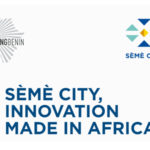We all have them. Those apps we open without thinking. Not because we need anything in particular, but because they feel… safe, in some…
Joburg duo to take on big boys in calcium carbonate sector with IDC VC funding

Entrepreneurs Zane Abrahams and Mark Anthony Appollos are taking on the big boys. The two plan to give an established calcium carbonate player a run for its money by setting up a R250-million plant in Richards Bay, following a recent venture capital investment from the Industrial Development Corporation (IDC).
Calcium carbonate is produced from limestone and is used in a number of products, including paper, paint, plastic and PVC. The sector is dominated by importers and by Idwala Industrial Holdings which controls about 80% of the market.
Abrahams and Appollos runs EMV Nanomaterials, one of several early-stage companies that have received funding from new industries unit, since the unit’s inception in 2015.
Read more: IDC approves R17m deal to fund SA’s first 3D metal printer
Abrahams has worked previously in the printing industry, while Appollos has held various senior manager positions while also having supplied state-owned enterprises with marine oil.
In December 2016 the company landed a R5.75-million investment from the IDC through the state funder’s new industries unit, in exchange for 49% of the company’s shares. The two registered the business in 2013.
Speaking to Ventureburn this week, Abrahams says the plant — which the two hope to have completed by middle or later 20202 — will be the first viable nano precipitated calcium carbonate plant in Africa.
In 2016 the company landed a R5.75-million investment from the IDC through the state funder’s new industries unit, in exchange for 49% of the company’s shares
As the particles the two plan to produce will be about 10% of the size of those of ordinary calcium carbonate particles the increased surface area will be enough for it to be considered as a partial replacement for titanium dioxide, he says.
The funding will help cover a bankable feasability study, which Abrahams said the two expect to complete in the next six months. If all goes to plan the IDC is expected to help fund much of the establishment of the Richards Bay plant — set to be based in the special economic zone — could be up and running by end of 2020.
Almost R400m approved by IDC unit
The IDC’s head of new industries Christo Fourie says his unit had approved R391-million in funding to 22 companies between 1 April 2015 and the end of October last year. Of this, R320-million is in the form of equity, with the remainder in debt finance (R60-million) and guarantees (R11-million).
When the unit was set up Fourie’s team was given the responsibility to continue to manage and support the IDC’s existing VC portfolio companies until the funder could exit from these investments. The previous VC unit only invested in startups that were typically still in the product development stage.
However, Fourie says while his unit can invest at an early stage, the unit’s mandate allows the IDC to invest at any stage of business development.
“Also, we try as far as possible to invest in or provide funding to companies seeking to commercialise proven technologies. The risk profile of our new industries book is consequently much lower than the old venture capital book,” he admits.
He says his unit aims to help the country to exploit the opportunities presented by the Fourth Industrial Revolution, promote a vibrant local natural products industry and set up full gas separation value chain in South Africa around Klydon Gas, a globally unique and competitive SA-developed gas separation technology for supply to local and global markets.
Clean-energy startup nets R6.6m
The unit will also help promote a local clean energy solutions sector. To this end the IDC in May last year invested R6.6-million in Johannesburg-based Clean Carbon Technologies for a 13% stake.
The funding has helped the company — founded by investor Vivek Nair in 2014 — to pay for process engineers and fabricators to build a large-scale reactor which can capture and convert flue gas from oil and gas companies into carbon nanotubes. These can be used in various products, such as in polymer composites, textile and electronics.
The reactor — which will be able to produce 80 tons of nanotubes a month — therefore has the ability to not only reduce client’s emissions, but can create a lucrative revenue stream for those deploying the machine — with carbon nano chips currently priced at between R400 and R500 a gram for multi-wall carbon nanotubes, says Clean Carbon Technologies COO City Seokane.
Seokane says likely because of the complexity of their business, it took over two years of engagements with the IDC before their application for funding was approved.
He says the company, which now has four employees, has kept going by taking part in challenges and accelerators, including Silicon Valley’s Plug & Play and Germany’s Tech Founders where the startup sourced €25 000.
However, he says the funding from the IDC has given the company credibility. The firm is now engaging with Sasol locally as well as Thyssenkrupp in Germany.
Seokane expects that the unit will be ready for testing by the end of May, but adds that delays are not out of the question, mainly because of the difficulty of procuring parts for the generator, as over a third of the parts are sourced overseas.
Featured image (from left to right): EMV Nanomaterials founders Mark Anthony Appollos and Zane Abrahams (Supplied)

